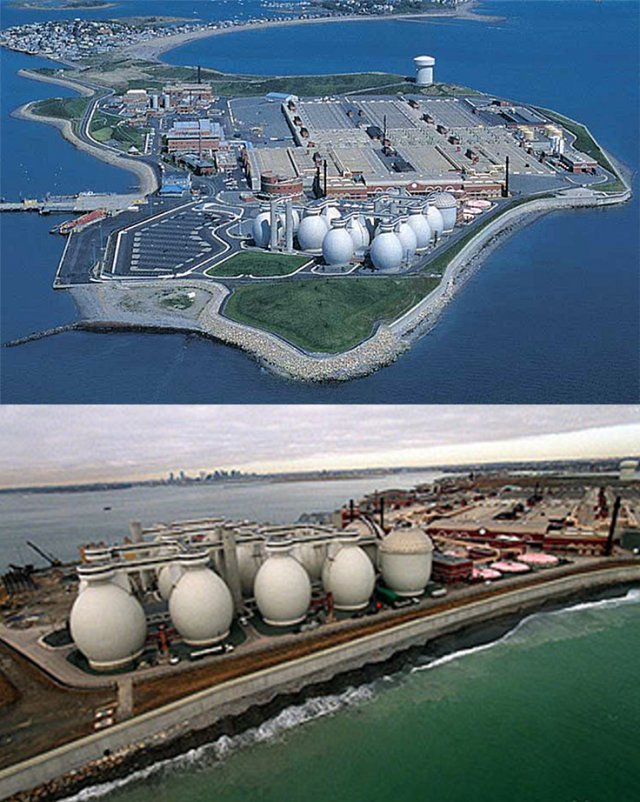Boston Raises Wastewater Facility to Avoid Inundation
In the late 1980’s, Boston’s Deer Island Wastewater Treatment Plant needed an upgrade. The Massachusetts Water Resources Authority (MWRA) determined facility vulnerability to sea level rise and decided to raise key portions of the plant by 1.9 feet. The redesign and construction covered a ten-year period (1989-1998) and was part of a $3.8 billion upgrade to add secondary treatment and consolidate regional treatment capacity by increasing Deer Island capacity from 250 to 350 million gallons for day.
MWRA’s decision to raise portions of the plant avoided extensive costs associated with building a seawall and covered the projected vulnerability over the planned life of the facility (through 2050). MWRA considers the vulnerability of its facilities on an on-going basis using current information to assess the effectiveness of its climate adaptation actions.
The Deer Island adaptation action has been re-evaluated for effectiveness within the city’s Comprehensive Adaptation Plan (Climate Ready Boston, 2016). This review used a community non-profit’s sea level rise study and concluded that MWRA’s decision to raise Deer Island is likely to be sufficient to avoid inundation of the facility over the next century.
How Did They Do It?
- Identified Facility Vulnerability - MWRA assessed its Deer Island wastewater facility’s vulnerability to sea-level rise in accordance with the best available science at the time.
- Adapted to Future Conditions - When confronted with needing to modernize the Deer Island facility, MWRA took the opportunity to redesign it keeping vulnerability over its projected operating life in mind (i.e., raising key portions by 1.9 feet).
- Reevaluated Risk and Vulnerabilities to Ensure Effective Adaptation as Risk Improves - In recent years, MWRA analyzed its entire system’s projected vulnerabilities to storm surge (using a proxy measurement equivalent to Superstorm Sandy), the 100- and 500-year storm events and low and high sea level rise scenarios. The analysis identified the facilities most at risk due to anticipated sea level rise. Deer Island, due to the adaptation measures already adopted, was among the least vulnerable facilities. MWRA also continues to monitor best available science to determine performance, including of the Boston Harbor Association’s sea level rise analysis (used within Climate Ready Boston: Final Report). This report further supports previous analyses that suggest Deer Island is among the least vulnerable facilities.
- Climate Ready Boston: Final Report
- EPA Coastal Inundation Toolkit - this toolkit can assist utilities in better understanding facility vulnerability by illustrating a range of potential sea-level rise and storm surge scenarios.
Similar Cases and More Information
Sea-level rise is only one potential impact from changing environmental conditions. Future projections are typically best considered as a range of likely impacts based on best available science. To see how a community conducted their own vulnerability analysis to sea-level rise, not relying on external analyses, view Manchester-by-the-Sea.
Retrofitting is not the only preparedness strategy for utilities dealing with projected increased flooding, two other strategies utilities can consider are building a wall to protect facilities from higher water levels (DC Blue Plains). For an example of how to decide on decommissioning flood-prone facilities, see Iowa City, IA, a highly flood-prone wastewater facility. For more on how Boston is adapting to changing environmental conditions, view Climate Ready Boston.

